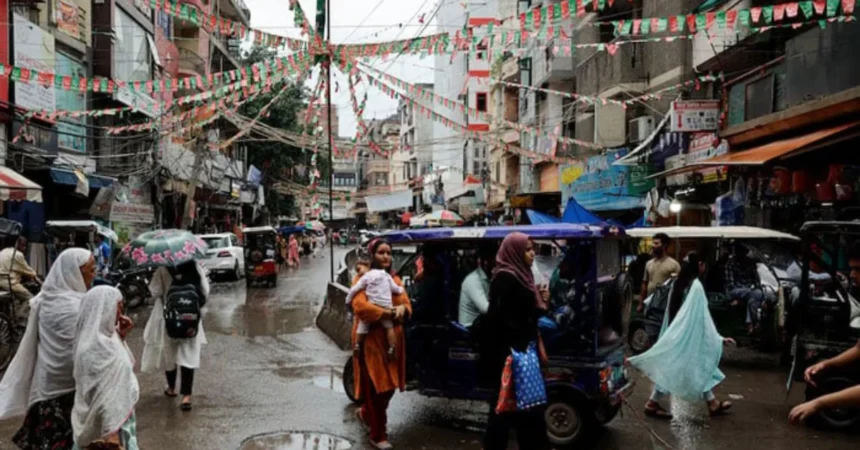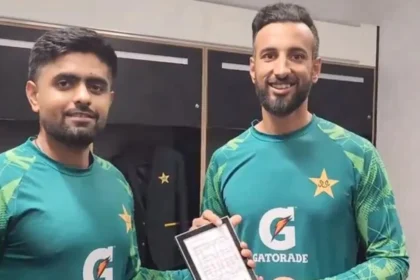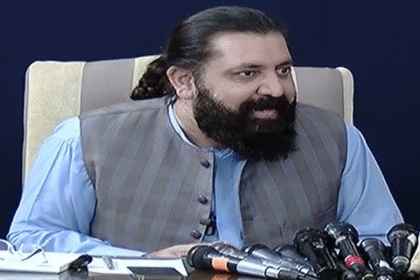In recent years, Indian Muslims have faced growing concerns about their safety and security in a changing socio-political landscape under Prime Minister Narendra Modi’s administration. Reports indicate that many members of the Muslim community are opting for increased segregation, choosing to live in enclaves that provide a sense of security from rising communal tensions and violence. This article delves into the motivations behind this trend, the implications for social cohesion, and the broader impact on India’s diverse society.
Historical Context
The roots of communal tension in India can be traced back to historical events that have shaped the country’s socio-political landscape. The partition of India in 1947, which led to the creation of Pakistan, was marked by widespread violence and communal riots. These events have had lasting effects on Hindu-Muslim relations in the country. Families were torn apart, communities were devastated, and deep-seated mistrust emerged between the two religious groups. This historical trauma set the stage for ongoing tensions, where memories of violence and displacement continue to echo through generations.
In recent years, the rise of right-wing Hindu nationalism has further polarized communities. The Modi government’s policies and rhetoric have often been perceived as favoring Hindu interests over those of minorities, particularly Muslims. The Bharatiya Janata Party (BJP), under Modi’s leadership, has promoted a vision of India that emphasizes Hindu identity, often at the expense of the secular and pluralistic ideals that the nation was founded upon. Legislative measures such as the Citizenship Amendment Act (CAA) and the National Register of Citizens (NRC) have been viewed as discriminatory, fueling fears among Muslims that their citizenship and rights are under threat. This perception has heightened anxieties and has led many Muslims to feel alienated from the Indian state.
Moreover, the political landscape has been marked by incidents of violence that have disproportionately affected Muslims. The lynching of individuals accused of cow slaughter, a practice sacred to Hindus, has garnered significant media attention and outrage, reflecting a broader trend of intolerance. Such acts of violence have not only resulted in tragic loss of life but have also fostered an environment of fear and insecurity within the Muslim community. Reports of mob violence and hate crimes against Muslims have become increasingly frequent, contributing to the belief that the state is either unable or unwilling to protect them.
The social implications of these tensions are profound. Many Muslims find themselves questioning their place in Indian society, grappling with feelings of vulnerability and exclusion. The fear of being targeted for their faith has led to a growing sense of isolation, prompting some to seek refuge in tightly-knit communities. Segregation often becomes a defense mechanism, a way to navigate a landscape perceived as hostile. However, this retreat into insularity can also perpetuate stereotypes and deepen divisions, creating an “us versus them” mentality that hampers dialogue and understanding between different religious groups.
Educational institutions and social gatherings have also become sites of contention, where discussions around identity, religion, and nationalism often lead to conflicts. In recent years, numerous incidents on university campuses have highlighted the contentious nature of student politics, where issues of nationalism and religious identity intersect. This has led to a resurgence of student activism within Muslim communities, as young people strive to reclaim their narrative and assert their rights. However, the growing polarization means that even spaces of learning and dialogue are fraught with tension, further complicating the quest for a more inclusive society.
Ultimately, addressing the historical context of communal tensions in India requires acknowledging the complex interplay of politics, identity, and social dynamics. It is essential for policymakers, civil society, and citizens to engage in constructive dialogue aimed at healing divisions and fostering understanding. Only by confronting the historical grievances and systemic inequalities can India aspire to build a future where all communities coexist peacefully and equitably. The path forward must involve not just political will but also a collective commitment to inclusivity, justice, and mutual respect for the diverse tapestry of Indian society.
The Current Situation
Reports suggest a significant increase in the number of Muslims choosing to live in segregated neighborhoods, often referred to as “ghettos.” These areas are characterized by a homogenous Muslim population and are often equipped with security measures, such as community watch groups, to protect residents from potential threats.
Several factors contribute to this trend:
1. Rising Communal Violence: Incidents of violence against Muslims, including lynching, mob attacks, and targeted harassment, have become more frequent. Many Muslims feel unsafe in mixed neighborhoods, fearing that they may become targets of violence or discrimination.
2. Political Marginalization: The Modi government’s policies have been criticized for marginalizing Muslims, including the Citizenship Amendment Act (CAA) and the National Register of Citizens (NRC), which have been perceived as discriminatory. The sense of political alienation contributes to the desire for segregation as a means of self-preservation.
3. Social Networks: The communal nature of these segregated neighborhoods reinforces social networks and support systems among Muslims. These communities often provide a sense of belonging and solidarity, which can be comforting amid external threats.
Community Responses
In response to the rising insecurities, many Muslim communities have taken proactive measures to ensure their safety. These include:
Establishing Community Vigilance: In several areas, local Muslims have formed vigilance committees to monitor their neighborhoods and report any suspicious activities. These groups work collaboratively with law enforcement to enhance security.
Building Educational Institutions: Many segregated communities have invested in establishing their own educational institutions to ensure that children receive an education grounded in their cultural and religious values. These schools also serve as community hubs, fostering a sense of identity and belonging.
Advocating for Rights: Various Muslim organizations and civil rights groups are advocating for the rights and protections of Muslims in India. These groups work to raise awareness about the injustices faced by Muslims and press for policy changes that promote equality and inclusivity.
The Impact on Social Cohesion
While the desire for security among Indian Muslims is understandable, the trend of segregation raises important questions about social cohesion in the country. The increasing separation of communities can lead to:
1. Erosion of Inter-community Relations: Segregation fosters an environment of mistrust and misunderstanding between communities. When people live in isolated enclaves, they have limited opportunities to engage with others, leading to further polarization.
2. Cultural Isolation: As communities become more insular, there is a risk of cultural isolation. Young people may grow up with limited exposure to diverse perspectives, potentially stifling dialogue and understanding.
3. Political Ramifications: The segregation of Muslims can lead to a lack of political representation and voice. When communities are marginalized, their concerns may be overlooked in the political discourse, perpetuating cycles of inequality.
The Role of Government and Society
Addressing the concerns of Indian Muslims requires a multifaceted approach that involves the government, civil society, and citizens. Key actions include:
Promoting Inclusivity: The government should actively promote policies that encourage social cohesion and inclusivity. This can include initiatives that foster dialogue and interaction between communities, as well as policies that protect minority rights.
Strengthening Legal Protections: Ensuring that laws against hate crimes and discrimination are enforced effectively is crucial. The government must take a firm stance against communal violence and hold perpetrators accountable.
Engaging Civil Society: Civil society organizations play a vital role in promoting peace and understanding. By supporting interfaith dialogues and community-building initiatives, these organizations can help bridge divides and promote mutual respect.
The trend of Indian Muslims segregating for security in Modi’s India reflects broader societal issues stemming from rising communal tensions and political marginalization. While seeking safety is a natural instinct, the implications of segregation for social cohesion and inter-community relations are concerning. It is imperative for all stakeholders—government, civil society, and citizens—to work together to foster a more inclusive and equitable society where all individuals feel safe, valued, and connected to one another.
#IndianMuslims #CommunitySafety #ModiGovernment #SocialCohesion #CivilRights #Inclusivity #ReligiousTolerance #HinduMuslimRelations #CommunityVigilance







